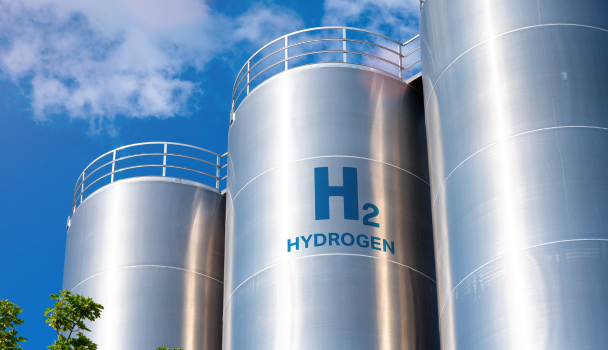Rabat - A recent study by Deloitte has positioned Morocco and Egypt as potential world leaders in the green hydrogen revolution. The report suggests that by 2050, North Africa could emerge as a dominant exporter of green hydrogen, with a projected annual export value of $110 billion. This forecast is based on data models from the International Energy Agency (IEA) and the abundant renewable energy potential of the region, particularly wind and solar power.
The study also unveils a potential reshaping of the global energy landscape, predicting a staggering market worth of $1.4 trillion per year for green hydrogen by 2050. Green hydrogen, generated through the electrolysis of water using renewable energy sources, is poised to play a pivotal role in reducing global greenhouse gas emissions and fulfilling international climate commitments.
Industries with high carbon emissions, including petrochemicals, steel, cement, and fertilizers, are anticipated to benefit from the adoption of green hydrogen. Furthermore, sectors like heavy transportation, including aviation and maritime industries, are eyeing hydrogen as a vital alternative to fossil fuels, given the limitations of electric batteries in these contexts.
At present, a mere 1% of the industrial hydrogen produced worldwide is classified as "green," generated through the eco-friendly electrolysis process. In stark contrast, the prevailing method involves producing "gray" hydrogen from methane gas, releasing substantial greenhouse gasses and contributing to climate change.
The promise of green hydrogen from renewable sources like wind, solar, and hydroelectric power has prompted exploration into its potential applications. Some ventures are even exploring the possibility of producing green hydrogen directly at sea, capitalizing on the proximity to wind turbines and desalination facilities.
According to Sebastien Douguet, head of economic consulting at Deloitte and co-author of the study, North Africa is well poised to make a significant contribution to the green hydrogen revolution. Douguet highlights the notable efforts of countries like Morocco and Egypt, which have shown a keen interest in hydrogen strategies.
"Morocco has a very high wind potential often underestimated, and a great solar potential, and Egypt has the means to become the main exporter of hydrogen to Europe in 2050 thanks to existing natural gas pipelines" that would be reallocated to hydrogen, he said. These nations are trailing only a few years behind major players like the European Union and the United States.
Douguet emphasizes the underestimated wind and solar potential of Morocco and Egypt. Additionally, he points out that Egypt holds the capability to become a major hydrogen exporter to Europe by leveraging its existing natural gas pipelines, which can be repurposed for hydrogen transportation.
Several nations are exploring the transportation of intermediate carriers, such as green kerosene, methanol, or ammonia, as a means to transport hydrogen. This strategy involves extracting hydrogen from these carriers upon their arrival at ports. This approach has already been adopted by importers like Japan and Korea, alongside major hydrogen producer Australia.
Despite the promising prospects of the green hydrogen economy, the study underscores the importance of long-term public support for infrastructure development and coordinated public policies. For the vision of a thriving green economy to become reality, sustained commitment and collaboration are essential.
The rise of Morocco and Egypt as potential green hydrogen leaders highlights the transformative potential of renewable resources in reshaping global energy dynamics and curbing the impacts of climate change.


